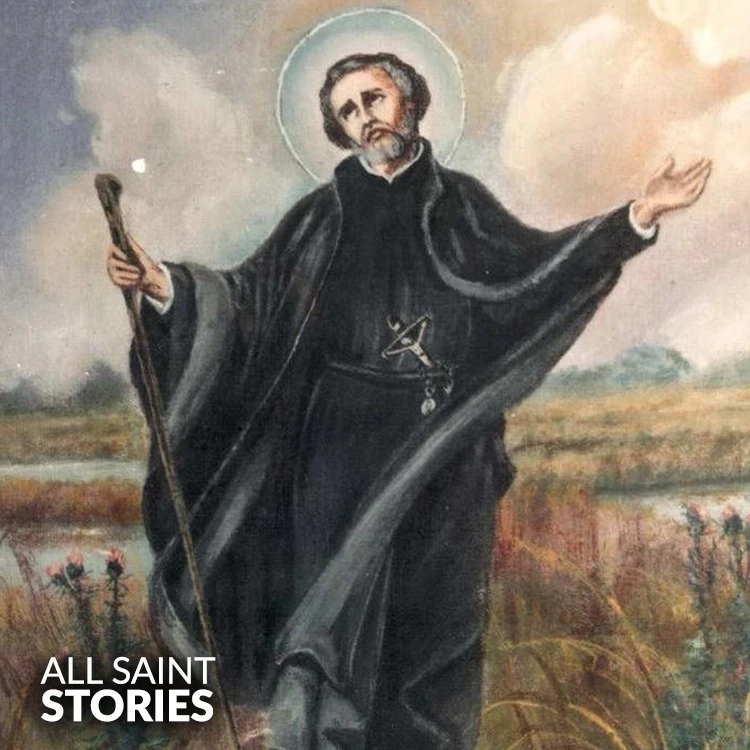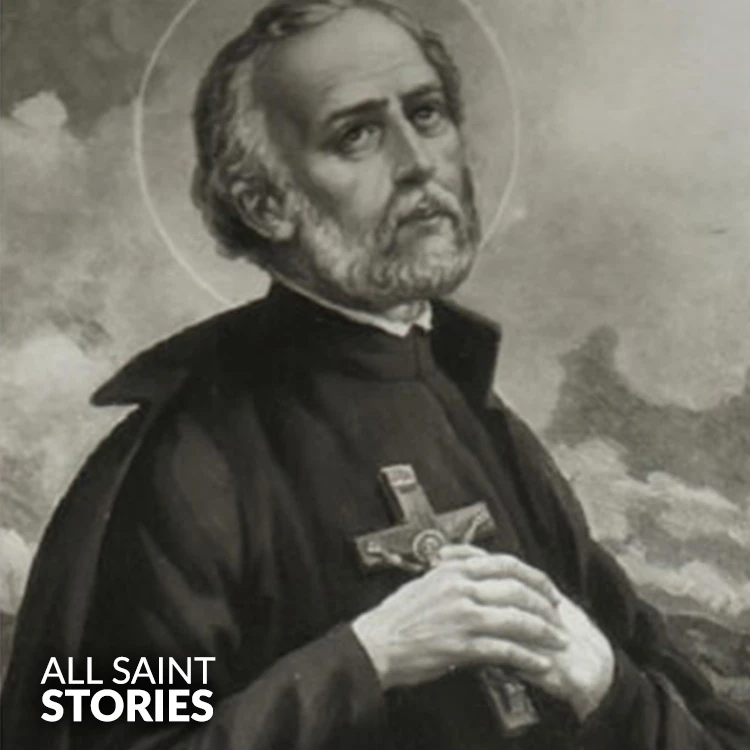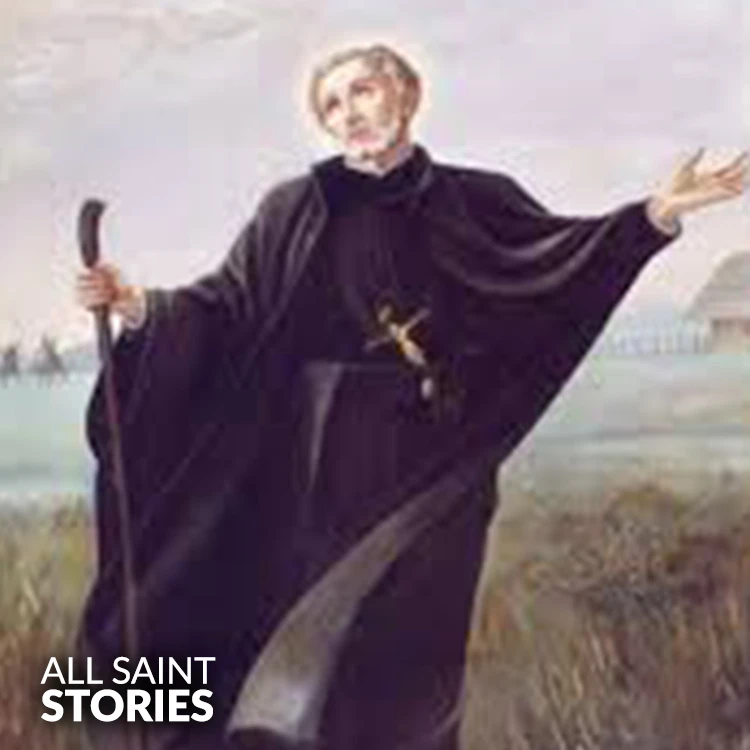St. Andrew Bobola, fearless servant of Christ, you gave your life for truth and unity. Strengthen us in faith when trials come, and help us to remain steadfast in the face of opposition. Intercede for all who suffer persecution, that they may find courage in your example. Pray for the unity of Christians and the peace of nations. Amen.
ST. ANDREW BOBBLA
ST. ANDREW BOBBLA

St. Andrew Bobola was a Jesuit missionary and martyr, remembered for his fearless witness to the faith and heroic endurance during persecution.
St. Andrew Bobola was born into a noble Polish family on November 30, 1591, in the town of Strachocina, then part of the Polish–Lithuanian Commonwealth. From a young age, he exhibited a sharp intellect and a strong desire to serve God. He entered the Society of Jesus (Jesuits) in 1611 and was ordained a priest in 1622. His formation within the Jesuit order deeply instilled in him a sense of discipline, humility, and missionary zeal.
Andrew dedicated his life to preaching and evangelizing in the borderlands of what is now Poland, Belarus, and Ukraine. This region was rife with religious tension due to ongoing conflicts between Catholics, Orthodox Christians, and Cossacks. Amidst this instability, Andrew carried out his ministry with remarkable courage. He traveled from village to village, administering sacraments, preaching, and working tirelessly to reconcile divided communities and convert many to the Catholic faith.
His passionate missionary work made him a target during the turbulent uprisings of the 17th century, particularly the Khmelnytsky Uprising. On May 16, 1657, Andrew was captured by Cossack forces. Refusing to renounce his Catholic faith and accept Orthodoxy, he was brutally tortured in ways too gruesome to fully recount. His tormentors flogged him, scalped him, tore off parts of his skin, broke his bones, and finally killed him with a sword. Throughout this horrific ordeal, he never ceased praying and invoking the name of Jesus.
Andrew’s body was buried hastily but later exhumed and found to be incorrupt—one of the signs that led to his veneration. Miracles were attributed to his intercession, and devotion to him spread throughout Eastern Europe. In 1938, he was canonized by Pope Pius XI, who named him the “Martyr of the East.” During World War II and the Communist era, his life became a source of hope and strength for persecuted Catholics.
Video Not Found
The information you see here may be either accurate or might contain some discrepancies, as it is gathered from various sources. If you believe that any part of the details about this saint is incorrect or incomplete, we kindly invite you to share your suggestions or corrections with us. Your insights are invaluable in helping us ensure that we provide the most accurate and reliable information.
We encourage you to use the form on the left to submit any corrections or additional information you may have. Whether it's a small detail or a larger correction, we will carefully review your submission and update the information accordingly. Your contributions will not only help us maintain the integrity of the content but also benefit others who seek to learn more about this saint. We greatly appreciate your assistance in making our information more accurate and complete.
Please rest assured that your personal details will remain confidential, and your suggestions will be handled with the utmost care. Together, we can ensure that the information about this saint is as accurate and informative as possible. Thank you for your time and contribution!
If you have any suggestion about ST. ANDREW BOBBLA
Your suggestion will help improve the information about this saint. Your details will not be disclosed anywhere.
© 2025 Copyright @ www.allsaintstories.com




 English
English
 Italian
Italian
 French
French
 Spanish
Spanish
 Malayalam
Malayalam
 Russian
Russian
 Korean
Korean
 Sinhala
Sinhala
 Japanese
Japanese
 Arabic
Arabic
 Portuguese
Portuguese
 Bantu
Bantu
 Greek
Greek
 German
German
 Dutch
Dutch